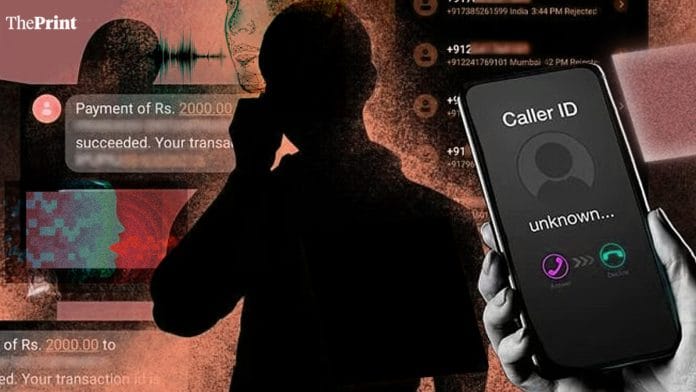New Delhi: Karnataka emerged as a cybercrime hub in India with more than 21,000 cases. India saw a 31.2 per cent increase with 86,420 cases, as compared to 65,893 reported in 2022, the National Crime Records Bureau (NCRB) report, released on Monday, said.
The state capital and IT hub Bengaluru reported the largest number of cybercrime cases, with at least 17,631 out of 21,889 cases reported in 2023, against 9,940 cases in 2022. The numbers underline how India’s technology capital has also become the epicentre of tech-enabled fraud.
The charge-sheeting rate in 2023 stood at 33.7 per cent. States like Karnataka, Telangana, and Uttar Pradesh recorded the highest number of cases, at 21889, 18,236, and 10,794 cases, respectively. The three states also topped the list in 2022. At least 74,751 cases had their investigation pending from the previous year (2022).
Yet convictions remain abysmally low. Karnataka only recorded 44 convictions and 60 acquittals. Uttar Pradesh, meanwhile, recorded the highest convictions (446), followed by Jharkhand with 114 cases. Telangana recorded 650 acquittals. Be it credit card fraud, OTP fraud, digital arrest, or online fraud, there have been new modus operandi every few months.
Also read: Delhi recorded highest number of crimes committed by juveniles in 2023: NCRB
Metros and online fraud
Police officials admit that while cybercrime awareness drives are being run in schools, colleges, and even among senior citizens, the gap between awareness and enforcement remains wide.
Among other metros, Hyderabad (4,855 cases) and Mumbai (4,131) followed Bengaluru. Overall, 19 metropolitan cities together reported 33,955 cybercrime cases in 2023—up from 24,420 in 2022 and just 17,115 in 2021. The steep rise shows that urban centres remain the softest targets for online fraud.
Out of all motives for cybercrime, fraud topped the list with 59,526 cases, followed by sexual exploitation and extortion. Other motives included: personal revenge, emotional motives like anger, causing disrepute, prank, and political motives.
Still, not every case finds closure. At least 6,895 fraud cases were found to be genuine, but due to insufficient evidence, untraced suspects, or lack of clues, the police filed final reports. The same happened in 7,686 cheating cases and 3,676 OTP fraud cases.
States also reported new fronts in cybercrime. Telangana reported 98 cases of spreading fake news on social media—nearly half of the 209 cases recorded across all states and Union Territories, NCRB data shows. Mizoram (31 cases) and Puducherry (147 cases) had a 100 per cent charge sheet rate in cybercrimes.
The NCRB report also flagged the darker side of the internet. Cyber criminals were involved in 2,168 cases of circulating sexually explicit material, including 1,472 cases related to children, the report said. States and Union Territories also recorded 1,305 cases of cyberbullying and stalking of women and children, along with 689 cases of cyber blackmail and threats.
Economic offences in India rose from 1,93,385 cases in 2022 to 20,4973 cases in 2023. At least 17,4013 cases were reported in 2017. The charge-sheeting rate stood at 54.5 per cent Of all cases in 2023, 1,81,553 cases were committed due to forgery, cheating and fraud. At least 62 cases were reported of criminal misappropriation of amounts of less than Rs 10 lakh. At least 9,713 cases of criminal breach of trust were reported from Rs. 1 lakh to 10 lakh.
Across 19 metropolitan cities in India, 41,220 cases of economic offences were recorded in 2023, against 35,185 cases two years ago, in 2021. At least 6,476 cases of economic offences were reported from Mumbai, 5,728 cases from Hyderabad, 5,304 cases from Jaipur, and 4,580 cases from Delhi.
(Edited by Ratan Priya)






